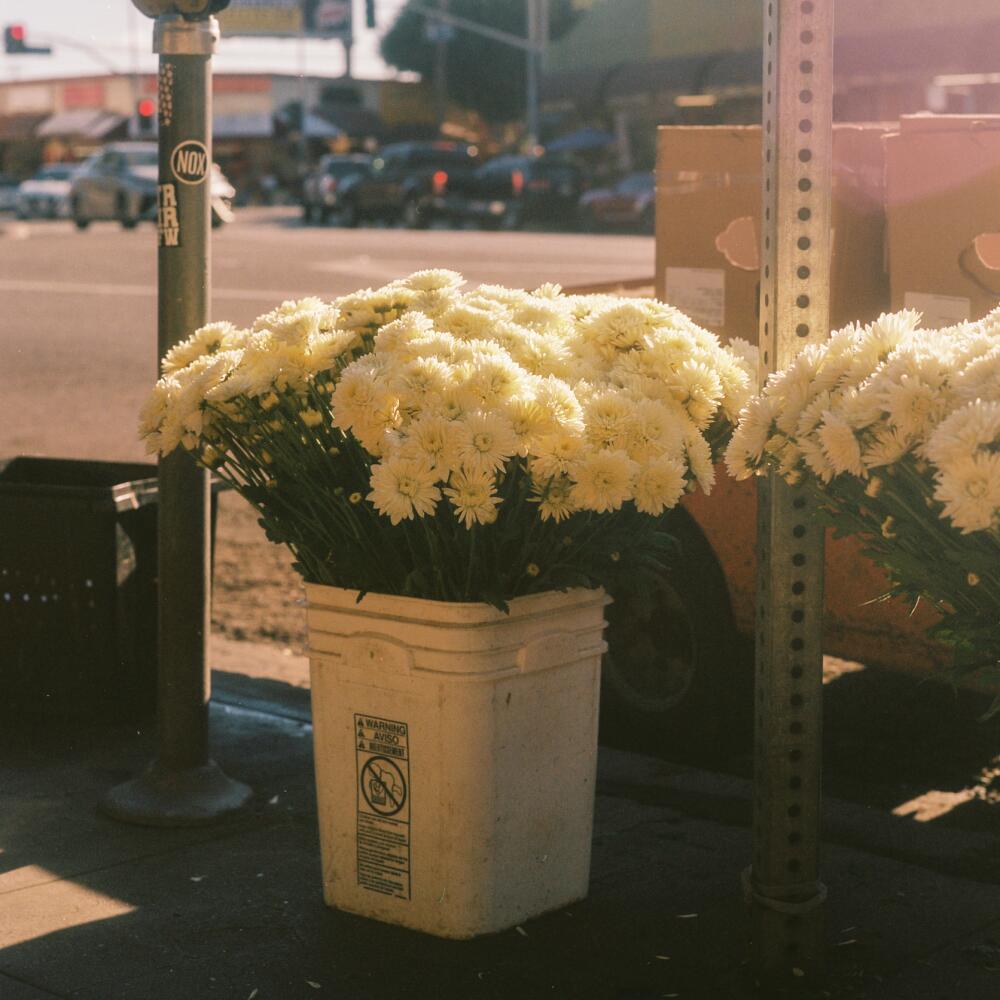
- Share via
Nature has been a theme and inspiration to poets since forever. When I first started writing, I hated nature poems. Poems about the trees in Massachusetts or those contemplating winter in Vermont felt insulting to me. I grew up in Calumet City, Ill., a steel mill suburb of Chicago, so the nature I grew up in was different. It was concrete and asphalt, bricks and blacktop.
My parents worked at the mall and at the steel mill. Who could think about the trees when we had to contend with economic anxieties? As a young poet, I rebelled against what I believed was a conservative poetry tradition. I wanted poems about the type of environment I was growing up in: smokestacks, factory lines, concrete, highways, dilapidated yards.
De Los Latino Poetry Series: Nature
This illustrated poetry series will feature new works by Latino poets in Los Angeles and across the U.S. Each week in November, guest editor José Olivarez and four other poets will reflect on their relationship to nature with video and photography by Samanta Helou Hernandez.
What I missed during those years was that my family and I were not actually living a life removed from nature. My mom and dad always kept a garden where they would grow zucchini, carrots, cilantro, peppers and a lot more than I can remember. Those days my mom would send me or one of my siblings to the garden to pick something she needed to finish cooking. We may have been living in a city, but my family was rooted in a tradition with the land and earth. This helped me understand that the natural world was mine to write about, just like the city. And when I started talking to the creatures living around me, I was moved to see they talked back. The oak trees I grew up with, the squirrels on my block, even roaches all have their own personalities.
For this series of poems, I asked four poets to reflect on their relationship to nature. So many of us are migrants or the descendants of migrants. How does that inform how we think about nature? What about the land and rivers and oceans and lakes between us and our ancestral homes? How do we reckon with climate change as something that is not in the future but something that is happening right now? How do we (especially us city people) heal our relationship with the beings all around us? What does nature teach us?
I chose to invite Vic Xochitl Chavez, Yesenia Montilla, Gisselle Yepes and Sabrina San Miguel to write for this series because they write poems with an emotional force that is captivating and beautiful. These four poets know how to write into heartache, tenderness, joy and laughter. I can’t wait for you to read their work.
Sabrina San Miguel
To the Person Who Keeps Planting Flamingos in the Underpass That’s Flooding
a love poem on the 60th day of 100+ degree weather
Saw them Monday morning / I was waiting for the sun because women always will /
she stopped running after night / and why shouldn’t she / anyone dead set on leaving you should go /
hey, I wanna ask what the earth in you looks like / you got a monarch heart as well?
do men ever grow migratory birds in the blood too / there’s a lady nearby selling jewelry
some deity gave her / she cups the face of me every time I let too much salt water in / Muñeca,
she says everything I ever learned about love was from the backseat of my mother’s fleeing / hey,
have you ever considered that maybe it ain’t water or flamingos that will save this place?
Sabrina San Miguel is a storyteller, poet and Texas native. Her work centers around women and survival and appears in Latinx Writing and Rhetoric Studies, The Rumpus and others. She is a 2018 Macondo Writers fellow, a 2020 Frontier Poetry Open finalist, a city of San Antonio Status of Women poet and a 2022 Brooklyn Poets Staff Pick. She is currently writing a book while raising three children.
Gisselle Yepes
aquí la naturaleza es una madre en el Bronx
colectando bolsas under the sink / in case you need anything / covered
before we learn the birds / choking / es ella tomando café from a tin can
after / she cooks the tomatoes / I wonder / if she knew herself / saving
the world / Mami takes the plants to the fire escape / the fire escape becomes
a garden / the soil here is concrete / and every Puerto Rican flag / our branches
reaching for each other / today / I need to go on a walk to reach for nature /
so I go / down the block / a la bodega / let myself be fed / be blessed by a stranger let
this corner / bear fruit / unlike the trees here / like the palmas back home
the tomatoes Mami grows /in the parking lot /covering the fence /every mother I love
is a mother / birthing something / even when we make life / at the end / of the world
Gisselle Yepes is a Puerto Rican and Colombian storyteller from the Bronx. Their autobiographical work is rooted in the intimate relationships between grief, memory and silence within familial dynamics and domestic spheres. Yepes is a Letras Boricuas 2022 Fellowship recipient, Tin House Scholar and Sundress Academy of the Arts resident. Their poetry has appeared in Split this Rock, Apogee Journal, Gulf Coast, Poets.org and more.
Vic Xochitl Chavez
in a dream, an ancestor and i become one with the Earth
before greed “owned” our mountains and valleys, she said
our people raised calabazas / sunflowers / cempasuchiles /
and we all grew in companionship / she said these are my relatives /
she told me the soil would recognize my petals /
the Earth would still welcome us home /
and so we frolic along the bosom of our mountains /
our feet root into the dirt / our bodies sprout from the gourds /
we are once again children of the pumpkin / i bloom and scatter /
Vic Xochitl Chavez is a queer Mexican American poet. They hold a bachelor’s in creative writing from Columbia College Chicago, where they were an assistant editor for both Columbia Poetry Review and Hair Trigger. Their poetry has been published in South Side Weekly, “Breakbeat Poets Vol. 4: LatiNEXT” and in Columbia College’s Poetry Review and Allium Journal. They are a poetry editor at Mulberry Literary and were published in the magazine prior to taking up an editorial role.
Yesenia Montilla
Self-Portrait as Jíbara
Everyone forgets that once I was never without a river.
Feet plugged in dirt, gossiping with the neighbors: mimosa
trees full of flowers that flirted with hummingbirds, nightjars,
iguanas. I ate lo que me convenia & the ocean steered the storms
away as waves waded leisurely & gorged on all the sweetness
I’d place at Yemaya’s hem. I was married to the land & our love
was mutual before greed grew legs & made our living the enemy.
Back then, were we all free? Not like billionaires but like beggars,
we asked of the earth & we received —
Yesenia Montilla (she/her) is an Afro-Latina poet and a daughter of immigrants. She is a Canto Mundo graduate fellow and a 2020 New York Foundation for the Arts fellow. Her first collection, “The Pink Box,” published by Willow Books, was longlisted for a PEN Open Book award. Her second collection, “Muse Found in a Colonized Body,” is published by Four Way Books and was a finalist for an NAACP Image Award. She lives in Harlem, N.Y.
José Olivarez
if humans have different dialects then maybe plants do too
whatever (warnings) (advice) (sweet nothings)
the violets give me get lost.
in translation, i keep the meaning
but lose all texture. all the honey.
all the smoke of life rises
to eye level. i bow down to the dirt.
some words keep the sweetness
of their names: honey. luz. cielo.
dirt. we’ve put enough family members
into the dirt, they must be whispering all around me.
my homies who don’t read poems
want to know why i can’t just say it simply.
i am saying it, i want to tell them. i am saying everything.
José Olivarez is the son of Mexican immigrants and the author of two collections of poems, including “Promises of Gold,” which was longlisted for the 2023 National Book Awards. His debut book of poems, “Citizen Illegal,” was a finalist for the PEN/Jean Stein Book Award and a winner of the 2018 Chicago Review of Books Poetry Prize. Along with Felicia Rose Chavez and Willie Perdomo, he co-edited the poetry anthology “The BreakBeat Poets Vol. 4: LatiNEXT.”
More to Read
The Latinx experience chronicled
Get the Latinx Files newsletter for stories that capture the multitudes within our communities.
You may occasionally receive promotional content from the Los Angeles Times.






